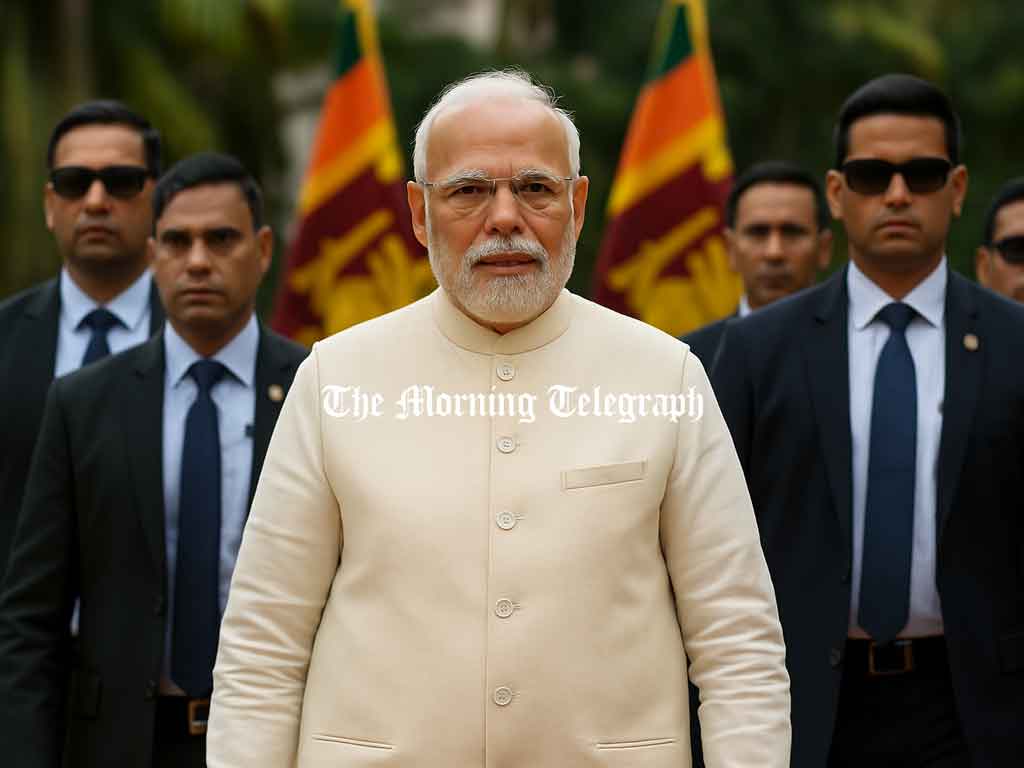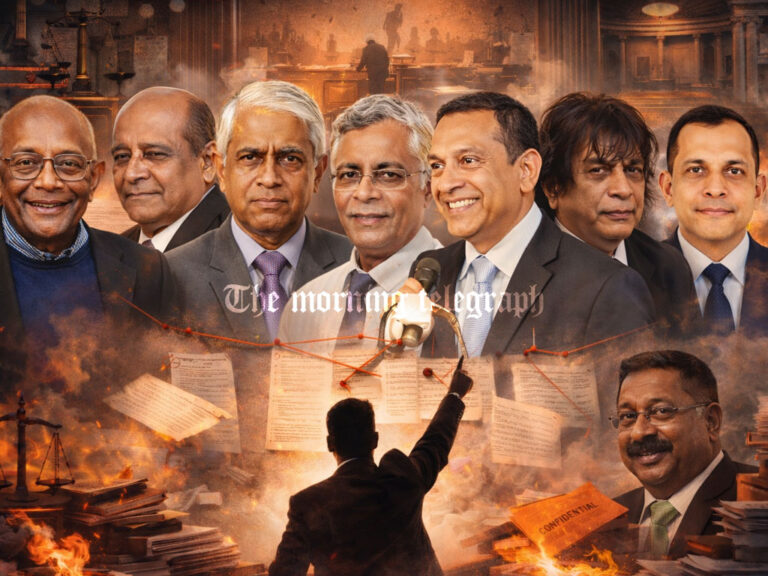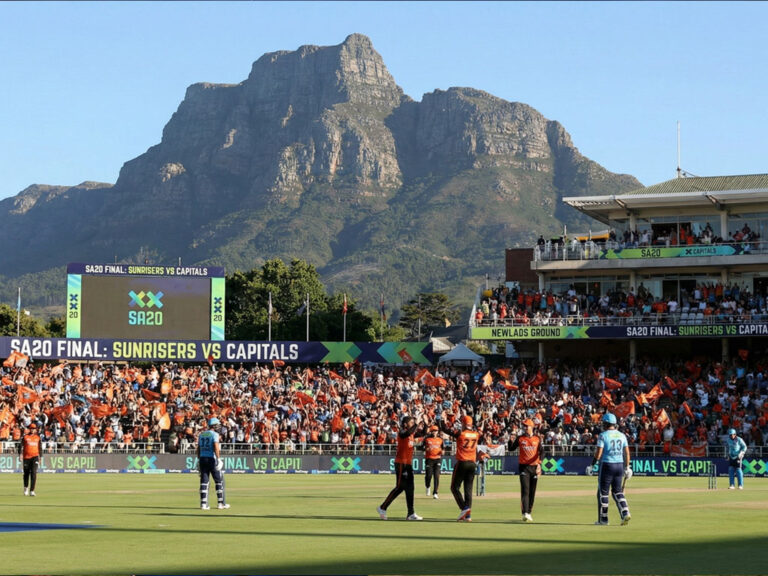
Indian Prime Minister Narendra Modi’s visit to Sri Lanka carries deep strategic implications and has prompted extensive political, diplomatic, and academic analysis. Recognizing Anura Kumara Dissanayake as a potential future leader of Sri Lanka, India invited leaders from the National People’s Power (NPP) to New Delhi in 2024, months before the most recent presidential election.
The Janatha Vimukthi Peramuna (JVP), the main force behind the NPP, has historically opposed Indian expansionism and interference in Sri Lankan affairs. However, following Anura Kumara Dissanayake’s victory in the presidential election, he chose India for his first official foreign visit, followed by trips to China and the United Arab Emirates.
Prime Minister Modi is the first foreign leader to be received by President Dissanayake since taking office, following an invitation extended by the Sri Lankan President himself. This marks Modi’s fourth official visit to the island nation. The official reception for the Indian Prime Minister will take place on April 5 at Independence Square in Colombo.
During his visit, multiple bilateral agreements are expected to be exchanged, covering areas such as security cooperation, digitalization, health collaboration, and energy. The visit will also witness the formal exchange of an already signed debt restructuring agreement between the two nations. In addition, Prime Minister Modi will virtually inaugurate several development projects, including the Sampur Solar Power Plant, a 5,000-metric-ton agricultural cold storage complex in Dambulla, and a project to install solar panels on 5,000 religious institutions in Sri Lanka.
According to Indian Foreign Secretary Vikram Misri, India is working on updating the Defense Cooperation Agreement with Sri Lanka, which is expected to be finalized during this visit. The Indian Ministry of External Affairs emphasized that Modi’s visit is in line with India’s ‘Act East’ and ‘Mahasagar’ policies, reaffirming its ‘Neighbourhood First’ principle and broader vision for the Indo-Pacific region.
Foreign Secretary Misri further stated that the visit is intended to promote investment and strengthen cooperation in physical infrastructure, digital technology, and energy linkages. The inclusion of a grid connectivity agreement in the energy cooperation package is particularly significant. He noted that Sri Lanka’s ongoing economic recovery opens new avenues for bilateral engagement. India’s involvement in Sri Lanka’s energy sector—particularly through Lanka IOC and potential energy hubs—demonstrates a sustained commitment to the island’s energy security.
Former Sri Lankan diplomat Dr. Dayan Jayatilleke expressed serious concerns about the defense agreement being discussed. He emphasized that this marks the first time in the history of India-Sri Lanka relations that a full-fledged security agreement is being considered. Dr. Jayatilleke questioned the transparency of the process, pointing out that neither the Sri Lankan Parliament nor the public has been consulted.
Dr. Jayatilleke said that while Sri Lanka has previously engaged in military training and joint exercises with various countries, a formal security pact with a regional superpower like India is structurally unequal and potentially dangerous. He cited ancient Indian strategist Kautilya’s ‘Artha Shastra,’ which warns that even friendly neighbors can pose latent security threats.
He also raised concerns about the proposed energy cooperation projects such as electricity grid integration and gas pipelines linking Mannar and Tamil Nadu. According to him, these arrangements could result in Sri Lanka becoming overly dependent on India, particularly in critical areas like energy and infrastructure. Dr. Jayatilleke accused President Dissanayake of contradicting his earlier public statements opposing such agreements and warned that the new security pact could have even more far-reaching implications than the 1987 Indo-Lanka Accord.
Highlighting India’s alignment with the anti-China ‘QUAD’ alliance (comprising the U.S., Japan, Australia, and India), Dr. Jayatilleke warned that entering a security pact with India could be interpreted as Sri Lanka taking sides against China—its most dependable development partner. He noted that India is also expected to finalize a 10-year security agreement with the United States by the end of the year, further complicating the geopolitical landscape.
Dr. Jayatilleke argued that Sri Lanka, by entering into such defense and energy arrangements, risks entangling itself in regional power struggles. He cited the possibility of India asserting influence over Sri Lanka’s northern and eastern provinces in the future. He concluded that these agreements represent an unprecedented compromise of Sri Lanka’s sovereignty since independence in 1948.
International Relations researcher Dr. Hasith Kandaudahewa took a more nuanced view. He stated that Prime Minister Modi’s inauguration of the Sampur Solar Power Plant signifies the strengthening of Indo-Sri Lankan energy cooperation. He highlighted projects like the Adani wind farm in Mannar as further evidence of India’s growing energy diplomacy in the region. Dr. Kandaudahewa said that India’s ‘Neighbourhood First’ policy is being executed in a practical and strategic manner.
He noted that while the U.S. appears to be scaling back its Indo-Pacific engagements, India is stepping in to fill the resulting geopolitical vacuum. He speculated that Modi might visit other small island states in the Indian Ocean to solidify India’s leadership role. He also observed that China has taken a more passive stance in Sri Lanka’s political developments in recent years compared to the active involvement seen during the Rajapaksa administrations.
Dr. Kandaudahewa commented on the shifting foreign policy of the JVP and the NPP, noting that their traditional opposition to Indian dominance seems to be evolving. Anura Kumara Dissanayake’s acceptance of an official invitation from India in early 2024 signaled a significant realignment. According to Dr. Kandaudahewa, Sri Lanka is on a trajectory toward increased dependence on India in the energy sector, which could serve as the new axis of regional influence.
Senior Lecturer Ramindu Perera from the Department of Law at the Open University offered a legal and policy perspective. He acknowledged that security agreements between nations are not unusual, particularly in the context of maritime security. Given the shared concerns over drug trafficking and smuggling in the Indian Ocean, naval and intelligence cooperation could be mutually beneficial.
However, he emphasized that the transparency and content of the proposed security agreement are critical. Perera stated that entering into a security agreement is not inherently problematic, but the terms must be carefully scrutinized to ensure they do not undermine Sri Lanka’s sovereignty.
Perera also addressed the broader context of Sri Lanka’s foreign relations. While China remains a key economic partner, India’s geographic proximity necessitates a different type of engagement. He argued that Sri Lanka must balance its economic ties with China and its strategic relationship with India carefully. He also noted that India may be more sensitive to China’s activities in South Asia than China is to India’s involvement in Sri Lanka.
Regarding energy cooperation, Perera said the key is to assess individual projects on their merit. He noted that the Adani project in Mannar has faced criticism from the NPP for potentially being economically unfavorable to Sri Lanka, a concern he believes carries some validity. He advised against generalizations, recommending that Sri Lanka evaluate each agreement on a case-by-case basis to determine its national benefit.
Perera also commented on the argument that energy trade with India could offer economic benefits during surplus periods and provide affordable imports during shortages. However, he warned that such dependency could jeopardize Sri Lanka’s energy sovereignty. Any agreement with India, particularly one with strategic implications, must include measures to manage both economic and political risks.
In conclusion, while Prime Minister Modi’s visit is being positioned as a significant opportunity to enhance bilateral relations, it has also sparked a critical national conversation. Concerns about transparency, national sovereignty, and regional power dynamics remain central to the debate. As Sri Lanka navigates this complex diplomatic landscape, the true impact of this visit will unfold in the months and years ahead.




